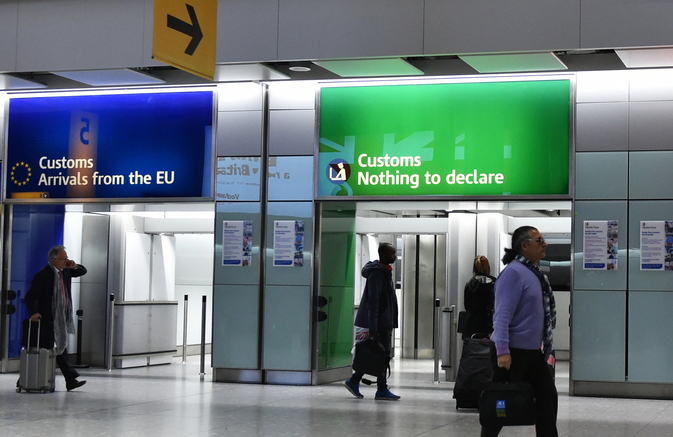LONDON — Britain voted to leave the European Union after a bitterly divisive referendum campaign, toppling the prime minister Friday and sending global markets plunging.
The decision launches a years-long process to renegotiate trade, business and political links between the United Kingdom and what would become a 27-nation bloc, an unprecedented divorce that could take a decade or more to complete.
“The dawn is breaking on an independent United Kingdom,” said Nigel Farage, leader of the U.K. Independence Party. “Let June 23 go down in our history as our independence day!”
Prime Minister David Cameron, who had led the campaign to keep Britain in the EU, said he would resign by October and left it to his successor to decide when to invoke Article 50, which triggers a departure from the European Union.
“I will do everything I can as prime minister to steady the ship over the coming weeks and months,” he said, “but I do not think it would be right for me to try to be the captain that steers the country to its next destination.”
Polls ahead of the vote had shown a close race, and the momentum had increasingly appeared to be on the ‘remain’ side over the last week. But in an election Thursday marked by notably high turnout – 72% of the more than 46 million registered voters – ‘leave’ won with 52% of the votes.
The result shocked investors and stock markets plummeted around the world, with key indexes dropping 10% in Germany and about 8% in Japan and Britain. The euro fell against the dollar and the pound dropped to its lowest level since 1985, plunging more than 10% from about $1.50 to $1.35 before a slight recovery, on concerns that severing ties with the single market will hurt the U.K. economy and undermine London’s position as a global financial centre.

Travellers might have to expect longer lineups.
Britain would be the first major country to leave the EU, which was born from the ashes of World War II as European leaders sought to build links and avert future hostility. Exiting the EU involves taking the unprecedented step of invoking Article 50 of the EU’s governing treaty. While Greenland left an earlier, more limited version of the bloc in 1985, no country has ever invoked Article 50, so there is no roadmap for how the process will work.
Of course, Brexit’s impact is felt not only in Europe but throughout the world, including here in Canada. The Toronto Star reports that the event could trigger financial instability in the country, at least in the short-term, and could also weaken the pound against the U.S. dollar. U.S. Federal Reserve Chair Janet Yellen warned that a hike to the dollar could slow the U.S. economy by discouraging trade, which in turn would make it even more expensive to travel in the U.S.
This could greatly impact Canadian travellers’ vacation plans for the remainder of the year. With less Canadians travelling south of the border and to destinations that accept the U.S. dollar, the more likely they’ll choose to vacation closer to home, within Canada.
How else will Brexit affect travellers? According to Traveltalk, travellers can expect longer lineups at airports since separate queues for citizens of the European Union will likely no longer exist. It could also make country-hopping around Europe more complicated as separate stamps for multiple destinations may be required upon entry.

